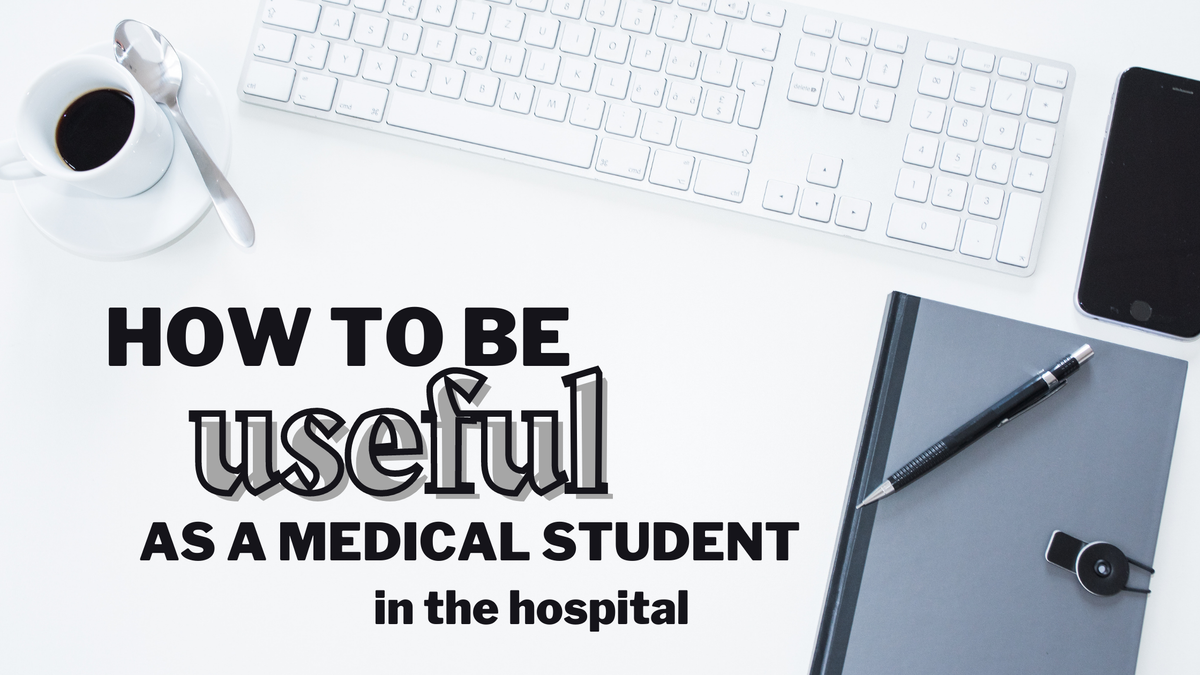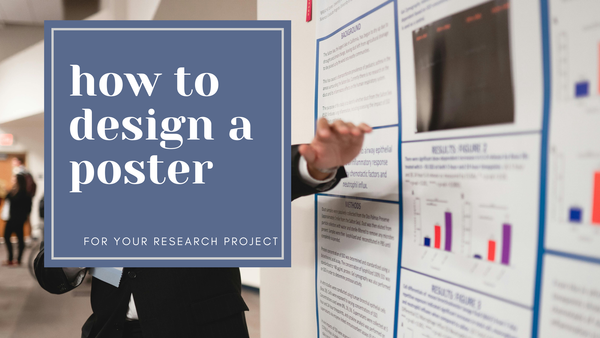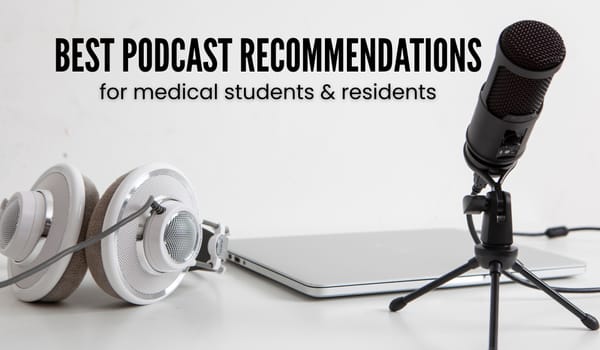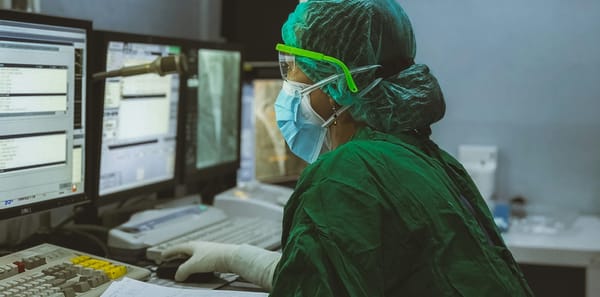How to Be Useful as a Medical Student in the Hospital
If you’re like me, you get discouraged when you don’t know how to make an impact as…

If you’re like me, you get discouraged when you don’t know how to make an impact as a medical student. Sometimes there are clinical rotations that are poorly organized and taught and you feel like even just being there is a huge waste of your time.
I know the feeling, believe me. In this post, I’d like to share some of the things I do to try to make every rotation that starts off terribly a bit more useful.
This blog post will have two parts: 1) how to make the most out of bad rotations and 2) how to be useful as a medical student.
How To Make the Most Out of Bad Rotations
Not every doctor is a good teacher; sometimes they’re too overwhelmed with their work to take the time to educate students, and sometimes they are just plain poor educators.
In cases like these, I think the most helpful thing you can do is show interest, or better yet, passion. Sometimes if a worn out educator notices that you are genuinely interested in their specialty/field, their entire approach to teaching you might change.
One easy way to show interest is to ask questions. It’s important not to ask questions for the sake of doing so – that will seem strange and likely frustrate your classmates. Try to ask questions that represent your current knowledge and encourage the teacher to delve deeper into a topic. If this doesn’t come naturally to you (as it doesn’t to me), I have one word for you: practice. Practice until you get comfortable asking questions, and thank yourself later.
I also find that taking notes in a small notebook not only provides great notes for later review, but also shows that you are invested, interested in the topic at hand. I’ve had multiple providers nod approvingly when they saw me take out my notebook to jot down an important tidbit (although I’ve had one or two tell me that they think it’s more important to ‘listen than to take notes,’ so it can go both ways. But generally, doctors seem to appreciate it, and I find it useful too, so it’s usually a win-win).
Another thing that is incredibly important is taking initiative. Sometimes the doctors will leave you on your own, and you feel like since there was no task assigned to you, there is nothing to do. That’s definitely not the case.
Find things to do – you’re in a hospital, after all, and there’s never nothing to do. So I remind myself to stay busy and find my own way.
Some ways to use ‘down time’ in the hospital efficiently:
- study: pull out a textbook or notepad and start studying
- Doing flashcards on your phone is also an option (daily Anki reviews woohoo), although I generally prefer not to be on my phone because it gives the image of not being interested (since they can’t tell what I’m doing).
- ask if you can help: ask anyone around you if you can do anything
- keep your eyes peeled: is there talk of a procedure in a few minutes? Ask if you can tag along – few providers will refuse the request of a wide-eyed, curious student
- talk to the staff: make conversation with the nurses, the physical therapists, the social workers; talk to whoever is part of the medical team. There’s so much we can learn from others in the hospital, not just doctors. For example, ask if the nurses can teach you something, or let you practice. I’ve had great luck with nurses showing me the ropes for bedside procedures.
- browse the EMR: ask someone to log you into the EMR (electronic medical records) and read up on patients! My favorite past-time was to log into the radiology program and just test myself: is this normal? why or why not? (and then I would go to the patient file and read the ‘official’ report).
- talk to the patients: you’re in a hospital, full of people who have their own unique stories and diagnoses. Find the bravery to approach strangers and talk to them about what brought them here. You’ll be surprised at some of the things you can learn.
- As an example, you can do what I did in internal: I flipped through all the files of the patients on the floor, and I skimmed the ‘physical exam’ portion to see if anyone had interesting PE findings (murmurs, masses, etc.). When I found anyone who had an abnormal finding, I went to the patient’s room, introduced myself and asked if they would allow me to listen to their heart, palpate their abdomen, look at their legs, what have you. There was not a single patient who turned me away (although I was careful to not awaken anyone who was sleeping). This gave me the opportunity to listen to some more aortic stenoses, examine a breast cancer and feel an enormous liver, amongst other things.
Some of you may be studying in a country where the language of the patients’ is different than your own. I highly recommend learning the local language – even a little bit helps! Alternatively, if you have a classmate who does speak the language, ask if you can join them for things. The key is putting yourself out there.
Being proactive and taking initiative all the time is exhausting, and you might get fed up. I know, because I’ve been there. It’s hard to be 120% on top of your game all the time, especially when it feels like the doctors don’t even care. But don’t get discouraged – you can have bad days, but the important thing is to keep showing up.
And find those few doctors who might care. Latch onto them, and never (ever) let go. Ask if you can accompany them for procedures, pull them aside to ask questions (when appropriate), shadow them as they go about their business. Be polite and patient, but overall: be there. The good doctors will notice you, and if they say you can go home because there’s nothing to do, don’t hesitate.
How to Be Useful As a Medical Student
As the ‘bottom of the feeding chain’ in the hospital, you might not feel very important or helpful. But don’t let that mindset fool you. You can make a huge impact in the hospital in ways that you might not even realize.
- COMPASSION: You, as the medical student, have far more free time than most providers. This means that you can take the extra time to truly listen to a patient, hear their grievances, answer their questions. I try not to cross the line into giving medical advice, and focus instead on the things I can reliably talk about.
- PATIENT ADVOCATE: This goes along with the previous point, but I wanted to highlight it specifically because it’s important. Doctors can get very overwhelmed and small things can slip their minds. I’ve advocated for patients to get pain medication, to receive physical therapy, to have their urine drainage bags emptied, to get food in the ER, to get more blankets or a drink of water, and so much more. This might seem like a little thing but it’s things that patients remember.
- Be observant and be present, and speak up if you notice that something was missed.
- ASK IF YOU CAN HELP: Doctors might not always be able to give you jobs to do, but they will always appreciate it.
- ANTICIPATE WHAT DOCS MIGHT NEED: This comes with spending some time on the wards, but for example, if a patient is heading into surgery, check their hemoglobin level. If they’re planning a thoracocentesis, help assemble the equipment. If a patient complains of dysuria, do a urine dipstick even before they ask.
There you have it: some ways to make yourself useful, and to make your time valuable.
Final Words: Impact in Everyday Life
Studying medicine will place you in a very special place in the world, a time when you have very little knowledge and experience, and yet many will value your opinion. People at family gatherings will ask you for insight into their intimate health problems, and family members might call you at random hours with strange questions that you simple can’t answer.
But there are three crucial things you can do:
- COMPLIANCE: Many people in my family struggle with compliance. While it is a very personal struggle, you as a medical student can help encourage better compliance to medications and therapy. The longterm effects of certain life-threatening diseases, like hypertension, are so gradual (insidious) that people who don’t feel the effects of it might tend to ignore the treatment (“Doc says I have high blood pressure, but I feel fine.”). Taking the time to thoroughly (and sometimes repeatedly) explain why taking blood pressure medication is an important (potentially life-saving) impact you can have in someone’s life.
- EXPLANATIONS: There are a lot (a lot) of medical misconceptions in the world, often touted by my own family. While I am no medical expert, I can certainly explain the pathophysiology of basic things that many people don’t know. This way, I can prevent the spread of misinformation and educate those closest to me.
- FIGHT STIGMA: Stigma against seeking help for mental health is widespread. Many people who would otherwise want to get help are scared, even paralyzed, by stigma. You can make an enormous difference in someone’s life by encouraging them to seek help – they will value your insight and your reassurance. If you’re not sure how to start a conversation about mental health, here is a link for some tips.
If you’re a first year medical student or just about to start, check out my tips for that here! For tips on how to behave in an operating room (OR) as a first time medical student, check out my blog post on that here.





